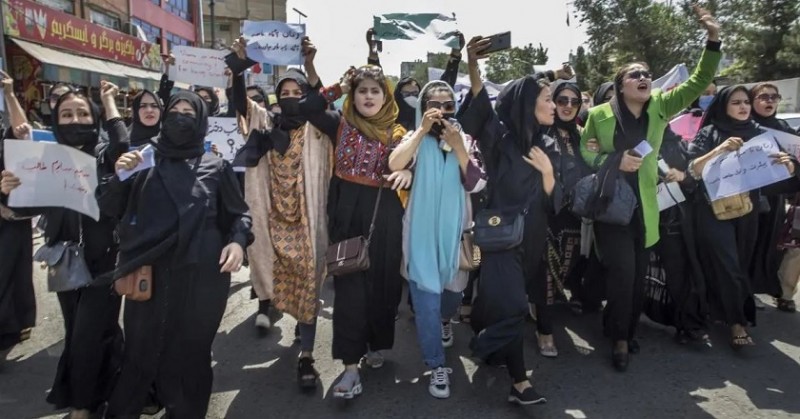
In Afghanistan, the Taliban has introduced a series of stringent new laws that impose further restrictions on women's freedoms. Under these regulations, women are required to cover their entire bodies, including their faces, in public. Public singing and reading by women are now banned, and strict guidelines govern their behavior.
These new laws, issued by the Ministry for the Propagation of Virtue and the Prevention of Vice, mark a significant escalation in the Taliban’s efforts to control various aspects of public life, reflecting a deepening suppression of women's rights since the group's takeover in 2021.
The Ministry for the Propagation of Virtue and the Prevention of Vice, established after the Taliban's return to power, released these new guidelines recently. The new rules encompass various aspects of daily life, including a ban on women's voices being heard publicly and the requirement for women to cover their faces, a departure from the previously accepted hijab.
According to the new regulations, women are prohibited from singing, reciting, or reading aloud in public, as their voices are considered "intimate." The laws also stipulate that women must avoid looking at men who are not their blood relatives or spouses. Violations of these rules could result in warnings, property confiscation, or detention for up to three days.
Heather Barr, associate director of Human Rights Watch's women's rights division, highlighted that while many of these rules existed informally before, they are now being formalized, marking a continued and increasing crackdown on women's freedoms.
Since the Taliban's return to power, they have progressively restricted women's rights. In 2022, they banned women from attending school beyond the sixth grade and from working in non-governmental organizations. Many women have reported severe consequences from these policies, including economic hardship and restricted opportunities.
The new laws also include regulations affecting men, such as prohibitions on shaving beards, restrictions on music, and requirements for prayer and fasting adherence. Drivers are required to have male guardians with female passengers, and both passengers and drivers must perform prayers at set times.
Media outlets in Afghanistan are now required to adhere to Sharia law, which bans images of living beings to comply with Islamic prohibitions against idolatry.
A recent UN report highlighted the increasing climate of fear and repression fostered by these regulations. Fiona Frazer from the UN’s human rights mission in Afghanistan expressed significant concern over the expansion of such oversight, especially for women and girls.
Recent Updates:
Pakistani Diplomat Warns of Potential 9/11-like Threat Emerging from Afghanistan
Taliban Commemorates Third Anniversary of Afghanistan Takeover with Grand Parade and Festivities